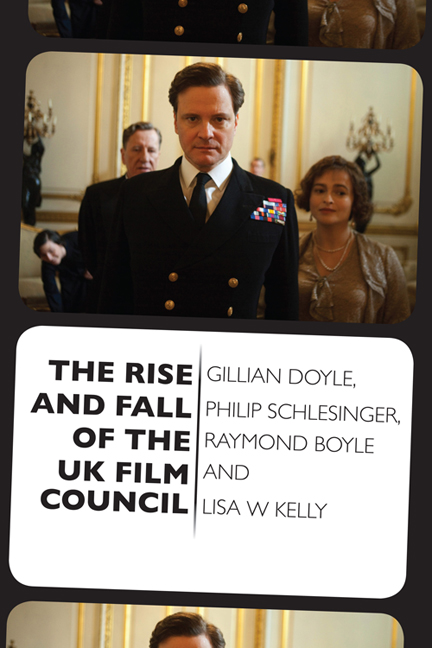9 - The Last Days of the UK Film Council
from Part IV - Strategic Lessons
Published online by Cambridge University Press: 05 September 2016
Summary
I think the last Government – and this is not a criticism of the last Government – had struggled to bring this merger together, potentially because of some of the personalities involved. It might reassure members of this Select Committee who, as Members of Parliament, are used to being criticised for tribal politics and artificial rows, that the film industry makes Westminster look like a village tea party in terms of some of the rivalries that go on in it.
(Ed Vaizey cited in HC CMSC (2011))Intimations of Mortality
In this chapter, we shift from a tale of creation to one of destruction, preceded by an uncertain interim phase. From the summer of 2009 merger talks between the UKFC and the BFI were in train. The key question during that period, in the run-up to the general election of May 2010, was which body would survive. In the end, it was the BFI. Here, we detail the background to the UKFC's sudden demise, which was totally unexpected by its leadership, and, indeed, much of the wider film industry, policy community and commentariat.
The full detail of the merger discussions in 2009–10 remains shrouded by prudence and discretion, with relatively little documentation presently on the record and considerable unwillingness on the part of key players whom we approached to speak about it. Geoffrey Nowell-Smith's (2012b: 306–7) useful brief account has been the best available to date. He notes the ‘increasingly strained’ relations between the two bodies early in 2009 and that in evidence to the House of Lords Communications Committee early in that year ‘Eric Fellner, Vice-Chairman of the BFI, floated the idea that it might be time for the BFI to regain its independence’.
On the UKFC's side, the desire to change relations with the troublesome BFI was unequivocally stated at its May 2009 board meeting. Noting that the fourth set of new Ministers in its lifetime had been appointed at the DCMS, the CEO's report noted:
[G]iven the state of UK public finances, closer working at an operational level between the UK Film Council and the BFI would be requested including the option of a full merger.
- Type
- Chapter
- Information
- The Rise and Fall of the UK Film Council , pp. 149 - 174Publisher: Edinburgh University PressPrint publication year: 2015



